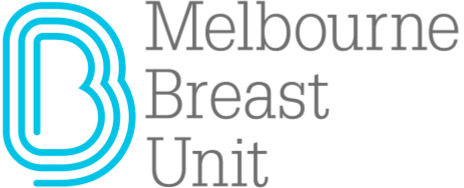Hospital Admissions
Which Hospital?
Depending on the procedures and availabilities, our surgeons perform the surgeries in the following hospitals;
- Epworth Cliveden
- Epworth Freemasons
- Epworth Richmond
Going to hospital for surgery or treatment can be stressful, but knowing what happens when you arrive and understanding your hospital’s admission procedure can help you settle in.
Before You Arrive at Hospital
The letter, email or text message of admission that your hospital sends to confirm the date and time of your hospital stay will also outline any special instructions you need to follow before arriving at hospital. For example, you may be requested to cease taking aspirin, fish oil, or any blood thinning medications. You may also not be allowed to eat or drink anything for many hours before your treatment.
You may have to attend a pre-admission assessment to make sure you are ready for treatment. This may be done over the phone or you may need to come in for an appointment at the hospital.
You may also be asked to fill in an online admission form with your personal and funding details, such as your Medicare card number and private health insurance details (if you have cover), and send this to the hospital several days before your admission.
Types of Hospital Admission
Depending on the purpose of your hospital stay, there are different types of hospital admissions:
- Day Procedure Admission
- Overnight Admission
Day Procedure Admission
For a day procedure admission, bring your admission notification and your pre-admission health questionnaire (if you have been asked to complete one) and go to the place stated in your admission letter, email or text message.
On arrival, check in at the reception desk, where you may need to fill in more paperwork and pay for your out-of-pocket expenses. You will then be shown to the pre-operative area by a member of the nursing team, where they will conduct an admission interview.
Overnight Admission
For an overnight stay, your admission letter, email or text message should let you know where you need to go on the day of your admission to hospital. Bring this letter, and your pre-admission health questionnaire (if you have been asked to complete one) and go to the place stated in your admission letter, email or text message. You may receive a call from the hospital on the day before your admission to confirm your hospital stay.
When you get to the hospital, check in at the reception desk and show them your admission notification and Medicare card. There may be more paperwork to complete and you may have to pay up front for any out-of-pocket expenses (if you are a private patient). You will be shown to your hospital room or a waiting area by a nurse, who will then conduct an admission interview.
Admission Interview
During your admission interview, you will talk with a nurse about your medical condition and your current health status. The nurse may conduct some basic tests, such as taking your temperature and blood pressure, and will ask questions about your health to make sure you are ready for surgery or treatment.
An anaesthetist, who is the doctor responsible for anaesthetising you for the duration of your surgery or procedure, may also ask you questions. Your surgeon may visit you too.
Asking for an Interpreter
For people who prefer to use a language other than English and for people who have vision, hearing or speech impairments, being unable to communicate effectively in hospital can be a serious situation.
Professional, accredited interpreters are impartial and deliver a confidential service. Interpreters are usually available to come to the hospital or to interpret via telephone. You can request an interpreter to be with you during your admission interview and at any stage of your hospital stay.
You can also ask if the hospital can provide translated information in a written format.
Disability Assistance and Other Special Needs
If you have vision impairment, ask if the hospital provides information, pre-admission questionnaires and other forms in electronic, large print or Braille format. You can also ask if they can provide extra, adjustable lighting in your room.
A hospital staff member will help you get used to your room so that you know where your personal belongings are and where the bathroom is, as well as any obstacles.
If you have a hearing impairment, you can request an interpreter for all communication with hospital staff, including during an admission interview and at any stage of your hospital stay. You can also ask your hospital for a communication kit for people with a hearing impairment.
If you are in a wheelchair or have trouble moving, the hospital will have wheelchair ramps, accessible parking spaces and wheelchair-accessible lifts, toilets and rooms. Ask your hospital if they have an accessible writing desk where you can fill in forms during the admissions process.
For any further information feel free to contact us on (03) 9419 1166
or via email breastunit@breastunit.com.au
BREAST CONDITIONS
BREAST DIAGNOSIS
BREAST TREATMENT
CONTACT
Fax: (03) 9419 6416
Level 1, Suite 113
320 Victoria Parade,
East Melbourne VIC 3002



